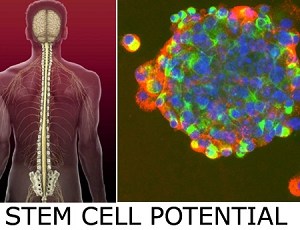The use of brain stem cell for stroke patients has passed its initial test. Now, researchers are going forward with the next test.
An independent evaluation, of the first three patients injected with the stem cells in their brain at Glasgow’s Southern General Hospital has presumed that the stem cell does not have any harmful effect.
The assessment leads the way for the stem cell treatment to be tested on even more patients so that researchers learn a new cure for stroke.
Researchers have hoped that stem cells are going to help in repairing damaged brain tissue.
Prof Keith Muir of Glasgow University leads the trial. So far, the doctor pleased with the result.
He claims that they need to ensure the safety, before they can move forward with the test. Since, this is the first time, that this method been used on humans. They needed to confirm the therapy is safe before they could conduct the test on a real human. At present, they got the go signal to proceed with the study to find out if higher dose of cells will produce a better result.
 In the first test, they conducted the test over an elderly person. Following the first test, they were able to test it on two more patients.
In the first test, they conducted the test over an elderly person. Following the first test, they were able to test it on two more patients.
Each one of the patients received low doses of stem cells in trials intended to test the security of the procedure.
Next year, researchers are thinking of conducting the test on nine more patients, which is going to be given with progressive higher doses. Of course, they are going to do all things to assure that the test is safe, and the participant will be under good hands. However, is going to use the clinical trial to consider the best ways of weighing up the success of treatment in succeeding larger trials that would not start at least 18 months.
Some critics tried to stop the study since the brains of fetus got used to create the cell treatment. However, Michael Hunt, Executive chief Executive Officer of the company, producing the stem cells, claims that they are not using fetus anymore to produce the cells needed.
To date, there are a number of well-regulated clinical trials all over the world to find out the effectiveness of the procedure. This includes the one that started last year by the US firm Geron, which aims to develop a treatment for paralysis.
Mr. Hunt claims that the treatment is still in the early stages, so it would be hard to tell if the therapy would work on a real patient. It might take years before the treatment could be sued in hospitals.